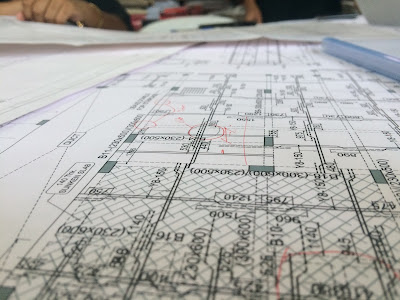The 10 Things a CIVIL ENGINEER should learn:
1) Basic Tests of all Building Materials.
Every Civil Engineer should have knowledge on how different building materials are tested. Concrete tests like compression test, split tensile test, soundness, initial and final setting times, workability, etc., Bitumen tests like softening point, abrasion test, etc., Soil Tests like core cutter test, sand replacement test, triaxial test, compaction, consolidation test, liquid and plastic limits, etc.,
2) All Field Tests used for Soil Investigations.
Several tests for soil are conducted prior to the actual construction process. The results of these test determines the settlement and stability. So, it is very important to have an idea of these tests which are performed at site.
3) Usage of Total Station, Theodolite and other Surveying Equipment.
Usage of Total station and similar equipment is also a mandatory knowledge for Civil engineers. Markings and measurements are made using several surveying equipment. So, how to operate these is crucial.
Image source: CS Team
|
4) Standard Codes used in Construction (ex: INDIA - IS Codes)
Every country will have certain constraints and safety specifications regarding construction industry and any other industry. Every new construction should be planned such that it follows all the specifications and procedures mentioned in the corresponding Standard codes.
Many of the failures in buildings are due to negligence of safety measures and quality control. So, to reduce man-made disasters, Standards codes plays a indelible role.
 |
| Image source: CS Team |
5) Deciphering Drawings (Specifications) and Knowledge of Autocad, Staad, Excel etc
Drawings provide the essential specifications required for the construction of a project. So, the engineers who are working under a project should be in a position to decipher the drawings and analyse key concepts and specifications.
 |
| Image source: CS Team |
6) Preparation of Estimates, Bills etc
Preparation of estimations, billing etc is also a key aspect.
7) On field management(form work, concreting, safety measures, etc)
Field management is the main skill required for a site engineer. He/she has to deal with labor and other sub ordinates and should complete work on time without delay. Safety is also a crucial aspect in construction industry.
 |
| Image source: CS Team |
8) Bar Bending Schedule
9) Quality control and Management, Co-ordination of labor and Subordinates
10) Knowledge of all Construction Documents
There are several documents involved in construction of any structure. Having knowledge about contract process and different types of documents will be an added advantage.
Trending on Civil Scholar:
If You are looking for Jobs please visit: http://www.civilengineeringgovtjobs.com/
Recommended Articles:
Top 10 Youtube Channels for Civil Engineers
RELATED POSTS:
REAL TIME INFORMATION:
The provision of real-time information concerning bus arrival times could potentially reduce the uncertainty associated with public transport trips and improve the overall level of service. In addition, real-time predictions might enable operators to apply proactive control strategies. Even though considerable research efforts were devoted to the development of bus arrival prediction schemes, there is a lack of knowledge on the performance of real-world operational systems. This article aims to investigate the performance of a commonly deployed real-time information generation scheme. A conventionally used scheme is implemented and evaluated based on an empirical analysis. Performance metrics concerning the prediction error accuracy and reliability and their impact on expected waiting time were formulated from both passengers’ and operators’ perspectives. The real-time information generator was applied on the trunk line network in Stockholm, Sweden. The accuracy and reliability of the prediction scheme was analyzed by comparing the generated predictions against vehicle positioning data. This scheme was found to systematically underestimate the remaining waiting time by 6.2% on average. The provision of real-time information yields a waiting time estimate that is more than twice as close to the actual waiting times than the timetable. This difference in waiting time expectations is equivalent to 30% of the average waiting time.

